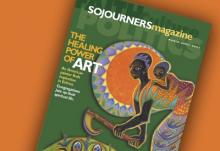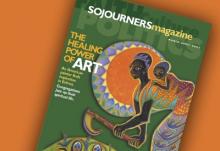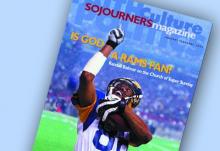National missile defense is only the latest version of "How I Learned to Stop Worrying and Love the Bomb." Our best protection from nuclear war? A global ban on nuclear weapons.
Feature
Sojourners assistant editor Rose Marie Berger traveled to Colombia in January with the human rights organization Witness for Peace to get a firsthand look at the supply side of the "war on drugs." She sought to assess the on-the-ground effects of "Plan Colombia"—the $1.3 billion U.S. military aid package approved by Congress last fall. The group met with a wide range of people, from local pastors and human rights workers to U.S. Embassy and Colombian government officials. They met subsistence farmers who grow coca that is processed into cocaine, a product that ravages neighborhoods across the United States—neighborhoods like Washington, D.C.'s Columbia Heights, where Berger lives. The effects of this "Colombia-to-Columbia Heights" connection, Berger writes, can be seen every day "in the form of discarded crack bags, late-night weapons fire, and prostitution."
The most difficult aspect of the experience for Berger was dealing with the despair that is a natural response to the horrors she witnessed. How do you bring a message of hope, for instance, to the woman Berger met one afternoon in a refugee center—"a woman whose brother had been murdered by paramilitaries, crying uncontrollably in my arms." In the end, the only answer to that question may lie in the telling of the story.
—The Editors
The pistol is shapely against his hip—hard glint of steel, sweaty camouflage. "I wasn't expecting you, but you are most welcome. Please sit. I'll send someone to get you water." Commandant Roberto Trujillo Navarro, a 1976 graduate of the School of the Americas, graciously welcomes the Witness for Peace representatives to the Santa Ana Forward Post, headquarters of the 24th Brigade in the sweltering jungle of Putumayo, in southern Colombia.
Trujillo is new to this post. The last commander was transferred after human rights groups publicized evidence that the 24th Brigade allowed paramilitaries to massacre civilians in the Putumayo region.
Behind the barracks condors sun themselves on the fence posts, blue-black wings stretched wide. The grassy ditch along the entrance road flaunts little metal signs warning of mines.
Putumayo takes its name from the river that is a natural border between Colombia and Ecuador and Peru. An area roughly the size of Vermont, Putumayo grows about 60 percent of the coca exported from Colombia—which produces 70 percent of the world's coca supply. Until 1996, the region was beyond the reach of any arm of government, a "Wild West" controlled by the world's oldest leftist insurgency, the Revolutionary Armed Forces of Colombia (FARC). Roads were built with grading equipment stolen by the FARC. Hospitals and schools were built by the FARC, too. And FARC "justice" was swift and permanent.
What we are able to remember is important, but how we remember is even more so. Nowhere is this more true than in the Middle East.
What does it take to create community? A calm and tender manner isn't a bad place to start.
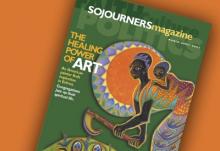
A national study documents what many congregations already knew—that the arts are good for faith, and faith can be good for the arts.
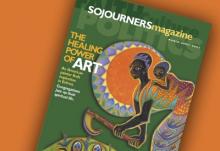
Atlanta's Ebenezer Baptist Church's new building demonstrates how architecture can incarnate the history, strength, and spirit of a people.
Several years ago I wrote a column on faith and families to be distributed to secular newspapers.
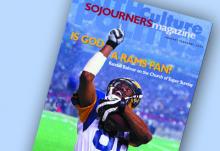
In newsrooms around the country, religion is no longer a dead-end assignment—but the media still have a long way to go before they get it right.
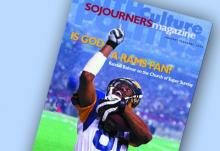
People of faith who complain about the religion gap in commercial television news coverage often try to explain it by charging that people running national news organizations are not well-enough
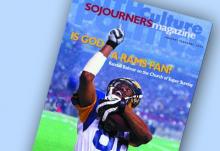
Not wanting to lose all credibility as a populist, I want to risk my credentials by criticizing for once not "the media elites" but "the people." Those elites may have some anti- or post-religiou
For much of the 30 years that I have been in some of America's top newsrooms, religion was treated like those klutzy galoshes our parents forced on us during heavy snowstorms.
A Washington Post ombudsman once tried to explain the stereotyping of evangelicals by a Post reporter who described them as "poor, uneducated, and easy to command."
Prior to the October 2000 ouster of Yugoslavia's Slobodan Milosevic, the United States pumped $77 million into the fragile opposition movement
